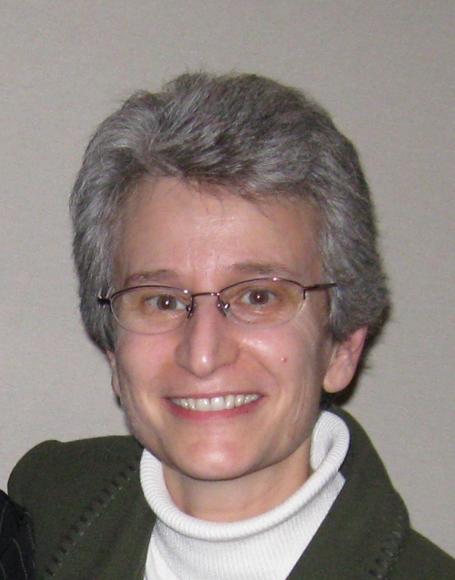May 31, 2013 – After Hurricane Katrina and the other hurricanes that hit the Gulf Coast and overwhelmed that region's out-of-date infrastructure in 2005, Dr. Jill Ginsberg – then a family provider at Kaiser Permanente in Portland – felt overwhelmed.

She happened to read an article in The Oregonian about Mary Overstreet Smith, who holds an honorary doctorate in divinity and is known to many community members as “Pastor Mary,” and who drove a van to Louisiana, personally helping relocate more than 40 families to Portland. Overstreet had found that many of these families – along with others in their community – were going without basic medical care, and she put out a call for help.
“I was blown away, because I was feeling so helpless,” Ginsberg said. “I made an appointment to meet her.”
Ginsberg got in touch in November 2005, and by August 2006, the North By Northeast Clinic had opened its doors. Ginsberg received some initial support from Kaiser, and applied for additional funding, receiving additional guidance on how to start a nonprofit through the Nonprofit Association of Oregon (then known as Technical Assistance for Community Services).
“I volunteered pretty much full-time for two years,” said Ginsberg, who said she is now compensated for part of her work at North By Northeast, but most of her time is contributed pro bono. The clinic has three full-time equivalent staff, and 80 volunteers, she said.
Prior to opening North By Northeast or working for Kaiser, Ginsberg had helped start a free clinic in Forks, Wash., now somewhat famous as the setting of the popular Twilight books and films, but in those days, she said, there were fewer tourists and more seasonal workers in the farm and timber industries, who needed care. She credits Overstreet – now an emeritus board member – and executive director Suzy Jeffreys – with ensuring the non-medical aspects of the clinic run smoothly.
The clinic was initially situated on Williams Avenue in North Portland and cared for uninsured patients residing in four zip codes in North and Northeast Portland. Four years ago this summer, North by Northeast moved into Garlington Center, a strip mall right on Martin Luther King, Jr. Boulevard, and now the clinic sees patients from six zip codes, still focusing on the Northeast quadrant, where Portland's African-American population has historically lived. However, Ginsberg said patients who've been seen at the clinic in the past are welcome to keep coming in for visits, even if they've moved out of the coverage area, as many patients have, due to the rapid gentrification of Northeast and North Portland in recent years.
The clinic's waiting area includes an exercise bike patients can use while waiting for an appointment – or even if they just happen to be in the area and want to use it for a while, Ginsberg said. North by Northeast accepts donations, but no payments for any of its services, and distributes medications and vaccines (donated by the state) at no cost. Even common over-the-counter medications, like aspirin or Tums, and toothpaste, can be burdensome for very low-income patients to buy, so those are donated to the clinic and given to patients who need them. A vacant lot adjacent to the clinic's parking lot has been converted to a community garden maintained by patients, and when the produce is harvested, it's also given to patients at the clinic.
About half of patients seen at North by Northeast are African-American and a slight majority are men; all are adults and all are uninsured. When a patient becomes insured, Ginsberg said, “We celebrate that, and make sure they have a place to go,” helping them find the care they need that their plan will cover. She added that in the future, North by Northeast will be able to see insured patients, since many of the clinic's current patients will be eligible for Medicaid under the pending expansion that begins next January.
She suspects it will take “years and years” to find all the patients who are eligible for Medicaid and help them get enrolled. The Coalition of Community Clinics is currently hiring enrollment specialists to help reach uninsured patients in safety-net clinics and assist them with the enrollment process – but Ginsberg cautions that people who visit safety-net clinics are already seeking care, and many uninsured people, particularly in marginalized groups, don't even try.
“A lot of the people we see have almost given up on the healthcare system,” Ginsberg said.
African-American men are “kind of our core constituency,” Ginsberg said, and they are “not a group that's gotten a lot of care and attention historically.” The clinic schedules 150 visits per month, though some are follow-up appointments, Ginsberg said.
“We spend a lot of time, initially, making sure that relationship with our patients is really strong,” said Jeffreys, and working on building trust with patients, many of whom have had negative experiences with the healthcare system in the past.
A patient who submitted a testimonial to the clinic and signed a media release provided she be quoted anonymously wrote that she had heard about the clinic through Overstreet's evangelical television show on cable access television.
“I think I told about 10 people before I actually came in myself,” the patient writes. “I think this is a blessing that people like you all care to take time out of your working life and leave your family to make sure we can get medical care we can't afford...I will never forget this.”
Christen McCurdy can be reached at [email protected].
